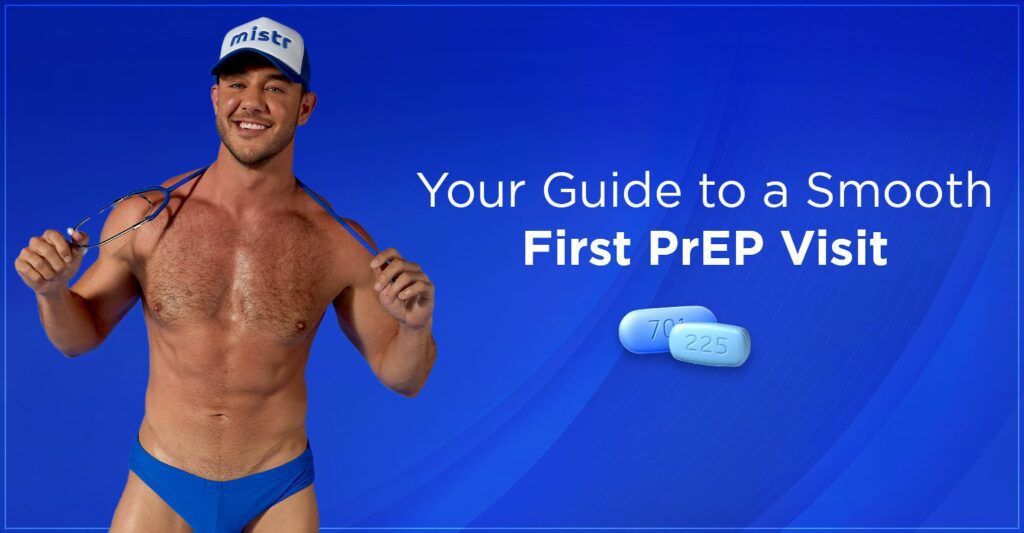Introduction to PrEP and Its Importance
Pre-exposure prophylaxis (PrEP) is a groundbreaking advancement in the fight against HIV. PrEP for HIV involves taking medication that significantly reduces the risk of contracting HIV. It’s a powerful tool for individuals at high risk, providing peace of mind and contributing to broader public health efforts to curb the spread of HIV.
Understanding the importance of PrEP for HIV is crucial. This medication is highly effective when taken consistently and as prescribed. For those in relationships with HIV-positive partners, those who engage in high-risk sexual activities, or individuals who inject drugs, PrEP offers a critical layer of protection.
Preparing for Your PrEP Appointment
Preparing for your PrEP appointment is the first step towards taking control of your health. Here are some key things to consider:
- Research: Understanding PrEP for HIV and how it works can help you feel more confident during your appointment.
- Health History: Be prepared to discuss your medical history, including any medications you are currently taking.
- Questions: Write down any questions or concerns you might have about PrEP. This ensures you don’t forget to ask something important during your consultation.
- Insurance Information: Have your insurance details ready, if applicable, to discuss coverage options for PrEP.
What Happens During the Initial Consultation and Testing
Your first PrEP for HIV consultation involves a comprehensive health assessment to determine if PrEP is suitable for you. Here’s what you can expect:
- Medical History Review: Your healthcare provider will review your medical history, including any chronic conditions, allergies, and current medications.
- HIV Test: An HIV test is essential to ensure you are HIV-negative before starting PrEP. If you test positive, other treatment options will be discussed.
- Kidney Function Test: Since PrEP medications can affect kidney function, a blood test will be conducted to check your kidneys’ health.
- Hepatitis and STI Screening: Additional tests for hepatitis and other sexually transmitted infections (STIs) might be performed to ensure comprehensive care.
Discussing PrEP Suitability, Options, and Potential Side Effects
After the initial tests, your healthcare provider will discuss whether PrEP for HIV is right for you. This conversation will cover:
- PrEP Suitability: Based on your test results and lifestyle factors, your provider will determine if PrEP is a suitable option.
- Medication Options: Different PrEP medications are available, and your provider will discuss the best option for you.
- Potential Side Effects: Understanding potential side effects is crucial. Common side effects include nausea, headaches, and mild gastrointestinal issues. Your provider will explain what to expect and how to manage these effects.
Receiving Your Prescription and Understanding Follow-Up Care
Once PrEP for HIV is deemed suitable, you will receive a prescription. Understanding the next steps is vital for effective use:
- Starting PrEP: Your provider will explain how to start taking PrEP, including the dosage and timing.
- Adherence: Consistency is key. Taking PrEP daily significantly enhances its effectiveness.
- Follow-Up Appointments: Regular follow-ups are essential to monitor your health and ensure PrEP is working as intended. This includes periodic HIV testing and kidney function assessments.
- Ongoing Support: Don’t hesitate to reach out to your healthcare provider with any questions or concerns as you continue your PrEP journey.
FAQs
What should I bring to my first PrEP appointment?
Bring your medical history, insurance information, and any questions you have about PrEP. This helps ensure a smooth and informative consultation.
How long does a PrEP consultation typically last?
A PrEP consultation can last from 30 minutes to an hour, depending on the complexity of your health history and the amount of information covered.
What are the main side effects of PrEP for HIV?
Common side effects include nausea, headaches, and mild gastrointestinal issues. These often subside after the first few weeks of taking the medication.
Can I start PrEP if I have other health conditions?
Your healthcare provider will assess your overall health to determine if PrEP is safe for you. Many individuals with chronic conditions can still take PrEP safely.
How often will I need follow-up appointments while on PrEP?
Follow-up appointments are typically every three months. These visits ensure that PrEP is working effectively and that there are no adverse effects on your health.
Is PrEP for HIV covered by insurance?
Many insurance plans cover PrEP. Check with your provider and discuss coverage options during your appointment.
Conclusion
Your first PrEP appointment is a crucial step in safeguarding your health against HIV. By understanding what to expect during your PrEP consultation, you can approach this appointment with confidence. Remember to prepare, ask questions, and stay engaged in your health journey. PrEP for HIV offers a powerful means of protection, and with the right guidance and adherence, it can significantly reduce your risk of HIV infection.
